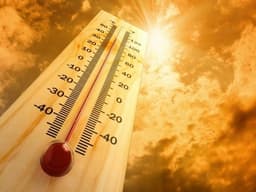Home / Environment / Chhath Puja Celebrations Marred by Toxic Smog in Delhi
Chhath Puja Celebrations Marred by Toxic Smog in Delhi
2 Nov, 2025
Summary
- Thick smog prevented devotees from seeing the sun during Chhath Puja in Delhi
- Extreme weather events like cyclones, floods, and heatwaves impacted various regions
- Climate change blamed for disrupting traditional festivals and livelihoods

As of November 2nd, 2025, the annual Chhath Puja festival in Delhi was marred by thick smog that prevented devotees from seeing the sun, a critical part of the celebrations. Thousands of women observing a 36-hour fast were left disappointed as the sun's rays failed to penetrate the toxic haze that had pushed Delhi's air quality to "very poor" levels.
The deterioration of air quality, which began around Diwali, has persisted, disrupting the traditional Chhath Puja celebrations. This is just one example of how the climate crisis is impacting India's cultural and religious traditions. On the same day, coastal Andhra Pradesh witnessed the landfall of Cyclone Montha, which killed three people and caused significant property and crop damage. In Jharkhand, eight districts suffered heavy rains, while the Delhi government had to resort to cloud seeding to create artificial rainfall.




